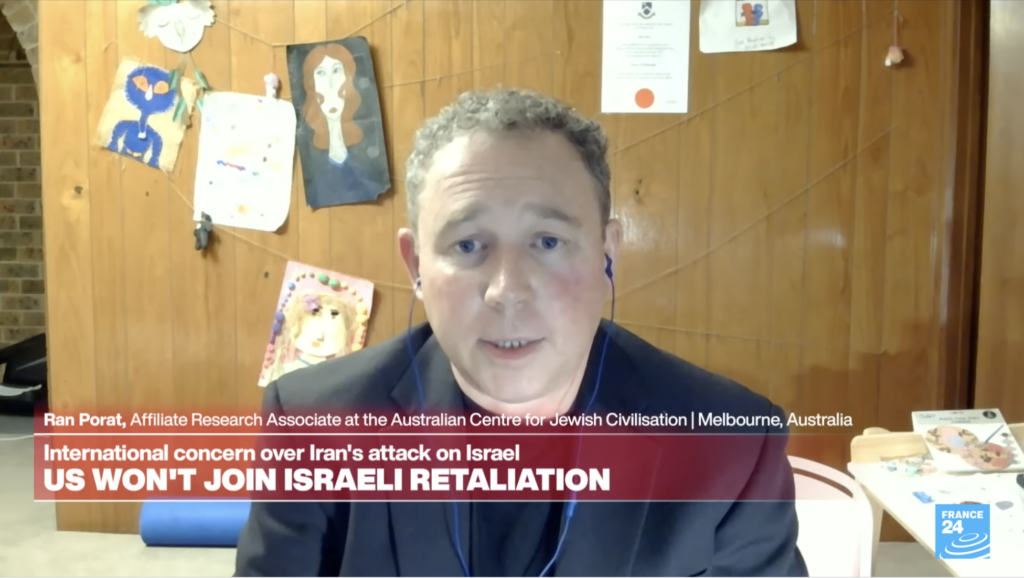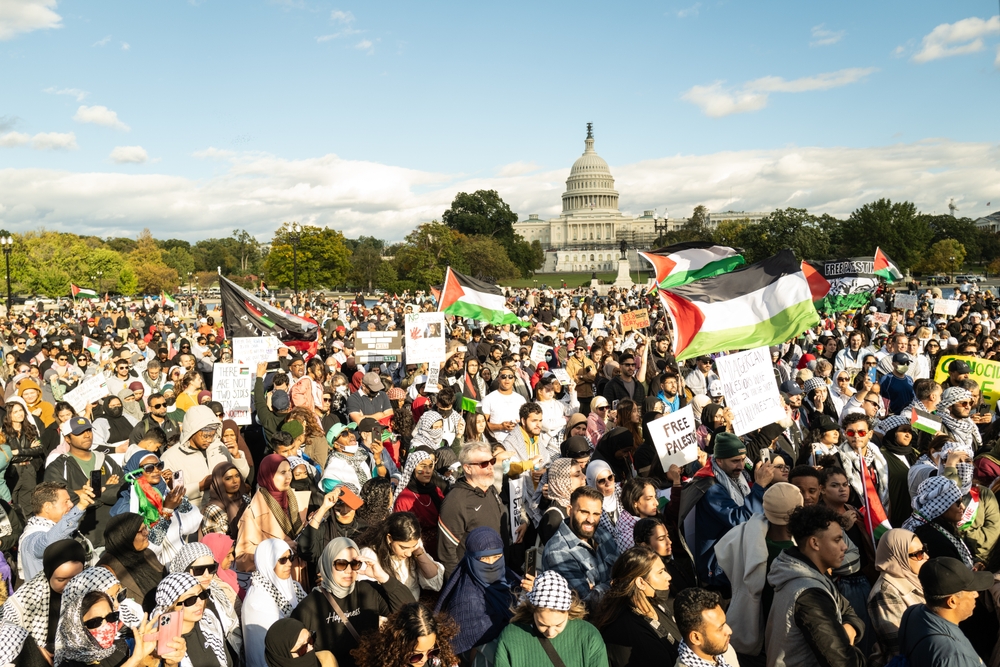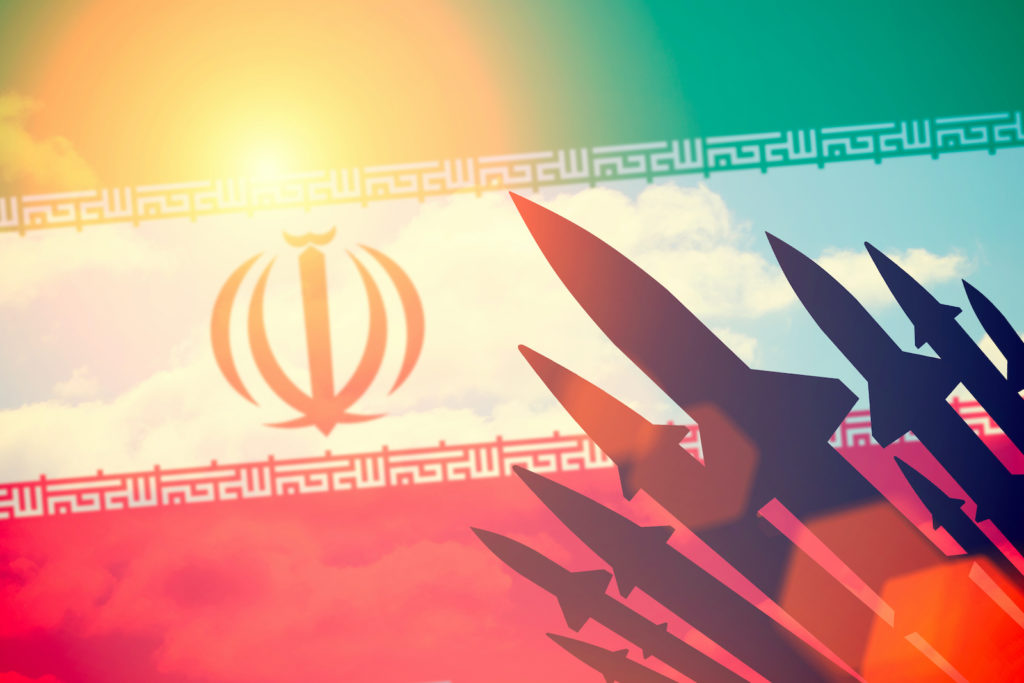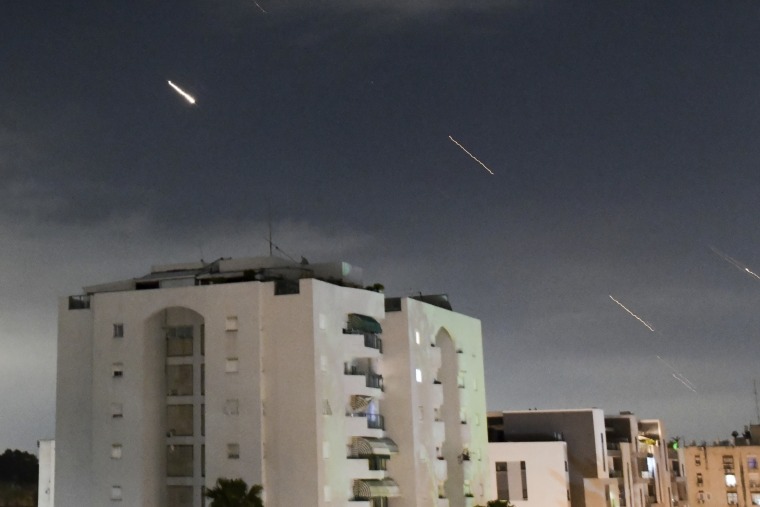UPDATES
The Goal of Eliminating Israel/Aid to the Palestinians
Jul 22, 2011
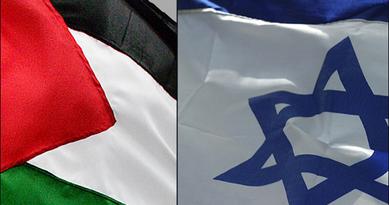
Update from AIJAC
July 22, 2011
Number 07/11 #07
This Update features a couple of pieces on the apparent continued prevalence amongst Palestinians of the goal of eliminating the State of Israel, as well as an important comment on the problems created by the overwhelming importance of aid to the Palestinian economy.
First up, some comments from noted Middle East historian Benny Morris on the latest poll of Palestinian opinion. He notes that not only do a majority of Palestinians reject a final two-state resolution to the conflict (as opposed to as an interim stage toward Israel’s eventual elimination), but large majorities believe in a supposed Islamic religious obligation to both fight Israel and ultimately, eradicate Jews. Morris suggests that this reality – that most Palestinians still want statehood only as a way-station to achieving Israel’s eventual elimination – should be taken into account when considering the plans for unilateral Palestinian statehood being pursued at the UN. For the full details of Morris’ arguments, CLICK HERE. Some more evidence of widespread Palestinian rejectionism of any Jewish rights in Palestine is reported from Ramallah by Canadian journalist Jonathan Kay.
Next up is former Israeli Defence Minister Moshe Arens, who argues that the Boycott, Divestment and Sanctions (BDS) campaign against Israel can best be understood in the context of past strategies to attempt to eliminate Israel. He argues that BDS is the “third wave” of such strategies, following hopes Arab armies would defeat and eliminate Israel, and later a belief that terrorism – especially suicide bombings and rocket attacks – could lead to Israel’s demoralisation and dissolution. He notes that BDS hopes to delegitimise Israel and turn it into a pariah state and that while “not all of the components of this coalition seek the destruction of the State of Israel, its more extreme elements have everyone else in tow.” But Arens comes to some reasonably optimistic conclusions about Israel’s resilience in the face of this whole phenomenon, and to read it all, CLICK HERE. Meanwhile, some additional discussion of the BDS movement, and the tendency of some to claim that boycotting only settlements is a completely different matter, comes from Dr. Gerald Steinberg.
Finally, Tim Marshall of Sky-TV in the UK has some comments, based on his own experiences on the West Bank, on the problems created by the overwhelming dependence of the Palestinians on foreign aid. He notes that 30% of the Palestinian economy is foreign aid and this create a dependence which “stifles the private sector, inflates wages and causes an internal ‘brain drain’.” He also discusses the numerous foreign NGOs operating in the West Bank, both providing attractive employment for foreign aid workers in relatively easy circumstances, and snatching up all the Palestinian best and brightest, who might otherwise become entrepreneurs. For this important piece in full, CLICK HERE. Barry Rubin had some further valuable comments on this article, including noting the extent to which massive aid creates incentives working against agreeing to a compromise peace. Meanwhile, Israeli Arab journalist Khaled Abu Toameh discusses the violent Palestinian reaction after the UN agency for Palestinians, UNRWA, announced modest aid cuts and changed its logo.
Readers may also be interested in:
- A report on opening of a new Gaza shopping mall, complete with cinemas and swimming pool.
- Elliot Jaeger on the status of Israel’s West Bank security barrier.
- Some horrible and disturbing video of Syrians murdered by their government.
- Israel academic Guy Bechor argues that the Arab Spring is destroying the use of the Palestinian refugees as a rallying cry for Arab unity.
- Some examples from the many stories and comments now appearing at AIJAC’s new daily “Fresh AIR” blog:
- A post summarising various report indicating that the Palestinian bid for UN approval for unilateral statehood may be losing momentum.
- A detailed response to a Sydney Morning Herald piece by Australian-Palestinian writer Randa Abdel-Fattah where she insisted that the basis of the Arab-Israel conflict is the supposed fact that Israel is a racist country.
- AIJAC’s response to the controversial anti-boycott law passed by Israel’s Knesset last week, along with lots of recommended reading on the subject.
Eliminating Israel
Benny Morris
The National Interest, July 19, 2011
A well-known hadith (a saying of the Prophet Mohammed accepted by Muslims as canonical and weighty), relating to the prospective end-of-days battle between Muslims and Jews, states:
The Prophet … says: ‘The hour of judgement shall not come until the Muslims fight the Jews and kill them, so that the Jews hide behind trees and stones, and each tree and stone will say: “Oh Muslim, oh servant of Allah, there is a Jew behind me, come and kill him” …’
This hadith is approvingly quoted in the 1988 Charter (or constitution) of the Hamas, the fundamentalist Palestinian organization that controls the Gaza Strip and won the 2006 Palestinian general elections.
And last week it received the approval of 73 percent of Palestinians in a poll run by American pollster Stanley Greenberg, conducted jointly by the Palestinian Center for Public Opinion, based in Beit Sahur in the West Bank, and the Israel Project, a peace-promoting international nonprofit organization. The finding was based on lengthy interviews with 1,010 Palestinian adults in the West Bank and Gaza Strip. About 80 percent of those polled agreed that it was the duty of all Muslims to participate in jihad to eradicate Israel.
The poll also found that 61 percent of Palestinians rejected the American-Israeli formulation for a settlement of the conflict based on two states for two peoples, one for the Arabs and one for the Jews. Only 34 percent of Palestinians questioned supported a “two-states-for-two-peoples” solution.
The poll reflects the decades of Palestinian—PLO-Palestine National Authority and Hamas—education and incitement of the population of the territories against Israel and, more generally, the Jews. Fifty-three percent of those polled favored teaching in Palestinian schools songs promoting hatred of Jews. But 66 percent of those polled adopted the PLO-PNA gradualist approach of a two-stage “solution” to the problem of Israel, approving a first stage in which there would be two states before moving onto “stage two” with the establishment of one Palestinian Arab-majority state over all of Palestine. (The Hamas rejects this strategy and speaks frankly of its goal as being the elimination of Israel at one go, without any prior or intermediate stages or agreements with the Jews.)
Most of the poll’s findings conformed to this outlook. Only 1 percent of Palestinians thought that Jerusalem should be Israel’s capital; 92 percent thought it should be Palestine’s capital. Only 3 percent thought the city should serve as the capital of both states.
The poll also reflected former Palestinian leader Yasser Arafat’s famous denial (at Camp David in July 2000) of the Jews’ historic link to Jerusalem and, by extension, to the Land of Israel/Palestine. Seventy-two percent of those polled denied that there was any historic link between the Jewish people and Jerusalem.
Interestingly, the poll found that only 22 percent of those polled supported firing rockets into Israel, 65 percent favored a diplomatic-political solution to the conflict and only 20 percent preferred the road of violence. This perhaps reflects the average Palestinian’s tiredness of the conflict and unwillingness to pay the costs of violence while supporting the goal of Israel’s elimination. Eighty-three percent of those polled thought that PNA President Mahmoud Abbas’s priority should be creating jobs. But only 2 percent thought it should be peace talks with Israel.
Most Palestinians—64 percent—backed the current PNA initiative of unilaterally declaring statehood and obtaining UN support for such a declaration later this summer.
Perhaps the international quartet that is currently prodding Israel and the Palestinians to restart negotiations should take this poll, and what it tells us, into account when considering Netanyahu’s fears regarding the Palestinian leadership’s real aims in pressing on with its intention to unilaterally declare independence and obtain international endorsement of Palestinian statehood in the West Bank and Gaza Strip, along the 1967 borders. Abbas’s people, if this poll is to be believed, clearly regard this diplomatic initiative only as part of “stage one,” and nothing more.
Back to Top
————————————————————————
The third wave
Haaretz,
20.07.11Three waves of aggression have been launched against Israel during the last 63 years, in attempts by Israel’s enemies to destroy the Jewish state. The first wave, an attempt to defeat the Israeli army on the battlefield, began in 1948 and continued, with interruptions, until 1973. The Yom Kippur War, which was launched with simultaneous assaults by Syria and Egypt, from the north and the south, respectively, caught Israel by surprise, before it had a chance to mobilize its army reserves, and these armies initially made substantial advances on both fronts. However, this was to be the last Arab attempt to challenge Israel on the battlefield. Within three weeks the Israel Defenses Forces, having called up its reserve units, crossed the Suez Canal, cut off the Egyptian Third Army and stood 101 kilometers from Cairo; in the north, Israeli forces were within artillery range of Damascus.
At this stage, both Egypt and Syria began pleading for a cease-fire to be put in place. After launching the war under optimal conditions and being totally defeated within three weeks, it had become clear to Israel’s enemies that beating the IDF on the battlefield was not an option. Throughout the 38 years that have elapsed since, Israeli deterrence has been effective.
With the deployment of their armies no longer a viable option, Israel’s enemies decided to use the weapon of terror. That was the second wave of aggression against Israel. The terror weapon was twofold: rockets launched from a distance against Israeli population centers, and suicide bombers. With the arrival of the suicide bombers – a precision weapon that the terrorist intent on suicide was able to place in buses, restaurants and wedding halls – the terror weapon, which until then had not been considered a major threat to Israel’s existence, began to tear away at the fabric of Israeli society.
The terrorists claimed that what could not be achieved on the battlefield could be achieved in the streets of Israel’s cities. Many in Israel insisted that terrorism could not be defeated militarily. The IDF and the security services proved them wrong with Operation Defensive Shield, in April 2002, when the army entered Palestinian cities and suppressed the terrorist menace. The terror-rocket threat, from Hezbollah in Lebanon and Hamas in the Gaza Strip, has not been eliminated but Israel is capable of dealing with it at a time of its choosing.
As it became clear that Israel had overcome both waves of aggression, its enemies chose another direction. This time it was a worldwide campaign to delegitimize the State of Israel, an attempt to make Israel an outcast among the nations, subjecting it to boycotts, disinvestment and sanctions. This campaign is gaining momentum.
The first wave of aggression naturally had the support of the Arab world. The second wave was also supported by Europe’s far left and various fringe terror organizations. But the global campaign for the delegitimization of Israel will need much broader support if it is to succeed. It is not very difficult to mobilize such support, starting with the United Nations. Nearly one third of UN member states are Muslim countries, assuring an automatic majority for any anti-Israel resolution at the General Assembly. Any of the five permanent members of the UN Security Council can veto a resolution by the council; Russia and China are disinclined to veto anti-Israeli resolutions, each for its own political and economic reasons.
The Quartet, a relatively new forum consisting of the United States, Russia, the European Union and the UN, has become another source of pressure against Israel. Add to all these the many Muslims living in Western Europe, the well-meaning “liberals” who are convinced that they know more about what is good for Israel than the democratically elected government of the state – a pressure group that includes a good number of Jews and even Israelis – and it is clear that a formidable coalition against Israel already exists. Although not all of the components of this coalition seek the destruction of the State of Israel, its more extreme elements have everyone else in tow.
Fortunately, Israel has grown strong economically and militarily over the years and should be able to overcome this third wave of aggression, as it has the first two.
————————————————————————
Palestine – ‘Occupation Incorporated’
Tim Marshall
Sky (UK)
July 18, 2011 8:04 AM
An African UN worker in the West Bank recently remarked to a mutual friend ‘When people see me coming they see a walking ATM machine’.
Driving through Ramallah, and then Jericho, the other day I was reminded of that quip as I looked at the smart restaurants, sparkling new hotels, and the scale of building work.
The Palestinian Authority likes to boast about the West Bank’ s 8% economic growth, so does the Israeli government, which uses it to suggest that a prosperous Palestine would make an easier negotiating partner. They also know the Palestinians have more lose if a 3rd Intifada breaks out.
What they fail to remind us is that there are well over 200 NGOs in the West Bank and Gaza, and 30% of the GDP here comes from international aid. Palestinians are among the most foreign aid funded people in the world and the place is awash with money.
This underlying economic problem is further complicated by the fact that UN Relief and Works Agency for Palestine Refugees stipulates that not only are the Palestinians who fled their homes in 1948 refugees, but so are their sons and daughters grandsons and granddaughters, great grandsons and granddaughters and so on into the future. In Palestine many people are born refugees. There are people who have a vested interest in this continuing. In 1950 there were 750,000 Palestinians in the Middle East, now there are 4.8 million. UNWRA is considered a ‘temporary agency’.
Even if the Palestinians declare full statehood in September they would not be truly independent, not only because of the continuing Israeli occupation, checkpoints, lack of freedom of movement of goods etc, but also because Palestine is addicted to aid and as long as you are addicted you are in thrall to your supplier.
The billions that pour in here mean the Palestinian Authority does not need to try very hard to deliver the services expected by voters, it also stifles the private sector, inflates wages and causes an internal ‘brain drain’.
The restaurant I went to in Ramallah had a line of expensive cars outside and ranks of NGO workers picking their way through an expensive menu inside. The NGOs do fine work alleviating suffering, helping projects with expertise etc, but they also recruit the best of the local talent and take advantage of their charitable status to get tax breaks.
No Palestinian business can compete with NGOs which routinely triple what a local firm would pay. Many NGOs fork out ‘danger money’ and even ‘hardship payments’ to both local and international staff which further undermines the local private businesses. So the NGOs get the brightest and the highest paid, and the private firms get the rest but without the tax exemptions.
“Palestine is the best-kept secret in the aid industry,” a medical NGO worker recently told This Week In Palestine, “People need field experience and Palestine sounds cool and dangerous because it can be described as a war zone, but in reality it’s quite safe and has all the comforts that internationals want’
Of course that could change. At any moment the West Bank could explode, indeed there are scenarios you can paint which suggest violence this September after the declaration, or non declaration, of statehood. But Palestine remains a friendly place, welcoming, hospitable, full of air con, hi-fi, wi-fi and wine. Journalists also take advantage of this state of affairs, writing of the poverty and suffering of Gaza for example, before retiring to very expensive sea front hotels after an excellent dinner in one of the expensive fish restaurants.
This is not to argue that NGOs are not required, many are, but they distort the situation and fundamentally the Palestinians cannot have properly functioning businesses, nor be fully independent until their leaders are partially weaned off their addiction to other peoples money.
Tags: Israel








